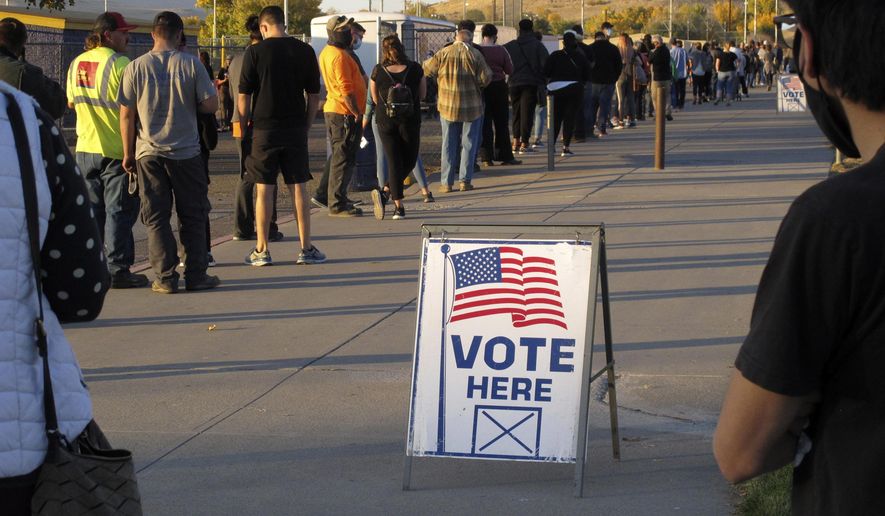RENO, Nev. — A candidate for Nevada attorney general will remain on the ballot in November despite not meeting the qualifications for the position and no longer wanting to run, a Carson City district court judge ruled.
John Kennedy, the Libertarian candidate, is not qualified for the position because he is not an attorney in Nevada and is not a member of the Nevada Bar Association. A 2021 law requires that attorney general candidates be a member of the State Bar of Nevada in good standing to run.
The Republican nominee for attorney general, Sigal Chattah, challenged Kennedy’s candidacy last month, saying that having Kennedy’s name on the ballot would cause her irreparable damage, taking away Libertarian votes that would likely sway Republican.
She blamed the secretary of state’s office for not investigating Kennedy’s background.
But Carson City District Court Judge James E. Wilson Jr. struck down Chattah’s lawsuit in a ruling Tuesday, mainly because it was filed 105 days after the deadline to file pre-election candidate challenges and four days after the deadline to change the general election ballot.
The court also sided with the secretary of state’s office, which argued that it is up to electors to file challenges if they believe a candidate is not qualified to run, and that Kennedy said in March that he qualified for the office if elected. It is the secretary of state’s “obligation to process, not investigate” the challenge, according to the court.
Kennedy also swore under oath when he filed to run in March that he is qualified to hold the office, per the court.
Chattah’s campaign said she will appeal.
Chattah originally filed an election integrity complaint with the secretary of state’s office on August 26, four days after the deadline for modifying general election ballots.
Kennedy sent a letter to Nevada Secretary of State Barbara Cegavske that same day asking to be removed from the race.
“Today it came to my attention that I was not eligible to run for this office because I am not a member of the bar in Nevada. That being the case, I seek to withdraw my candidacy and be removed from the ballot,” he wrote.
Kennedy said in the letter that two members of the Nevada secretary of state’s office interviewed him when he filed his candidacy, one of whom asked if he was a lawyer.
“I stated that I was not, but that it was my understanding that this was not a requirement to run for the office. She verbally confirmed to me that it was not a requirement,” he wrote.
In a court declaration, Deputy Secretary of State for Elections Mark Wlaschin disputed Kennedy’s account based on an initial investigation.
“We historically do not talk to anybody about qualifications,” Wlaschin later said in a phone interview. “It goes back to a lack of statutory requirement for us to vet individuals in any way shape or form.”
Chattah’s campaign manager Jon Shiner called the ruling a “shame” and said it disregards Cegavske’s obligation to enforce the law.
“Kennedy requested to be removed from the ballot, has withdrawn as a candidate, and yet, the secretary of state refuses to remove him from the ballot,” Shiner said in a statement.
Representing Chattah was Reno attorney and former Republican gubernatorial candidate Joey Gilbert, who came in second in the Republican governor primary by 26,000 votes but has baselessly claimed that he won. A judge recently dismissed his lawsuit challenging the election results.
Chattah won the June Republican primary by 11 percentage points over Tisha Black, a more moderate candidate who had the backing of Nevada’s Republican establishment.
Chattah and Kennedy are challenging Democratic Attorney General Aaron Ford in his re-election bid. Ford won a tight race in 2018 by about 4,500 votes, or barely half of a percentage point.
• Stern is a corps member for the Associated Press/Report for America Statehouse News Initiative. Report for America is a nonprofit national service program that places journalists in local newsrooms to report on undercovered issues. Follow Stern on Twitter @gabestern326.




Please read our comment policy before commenting.